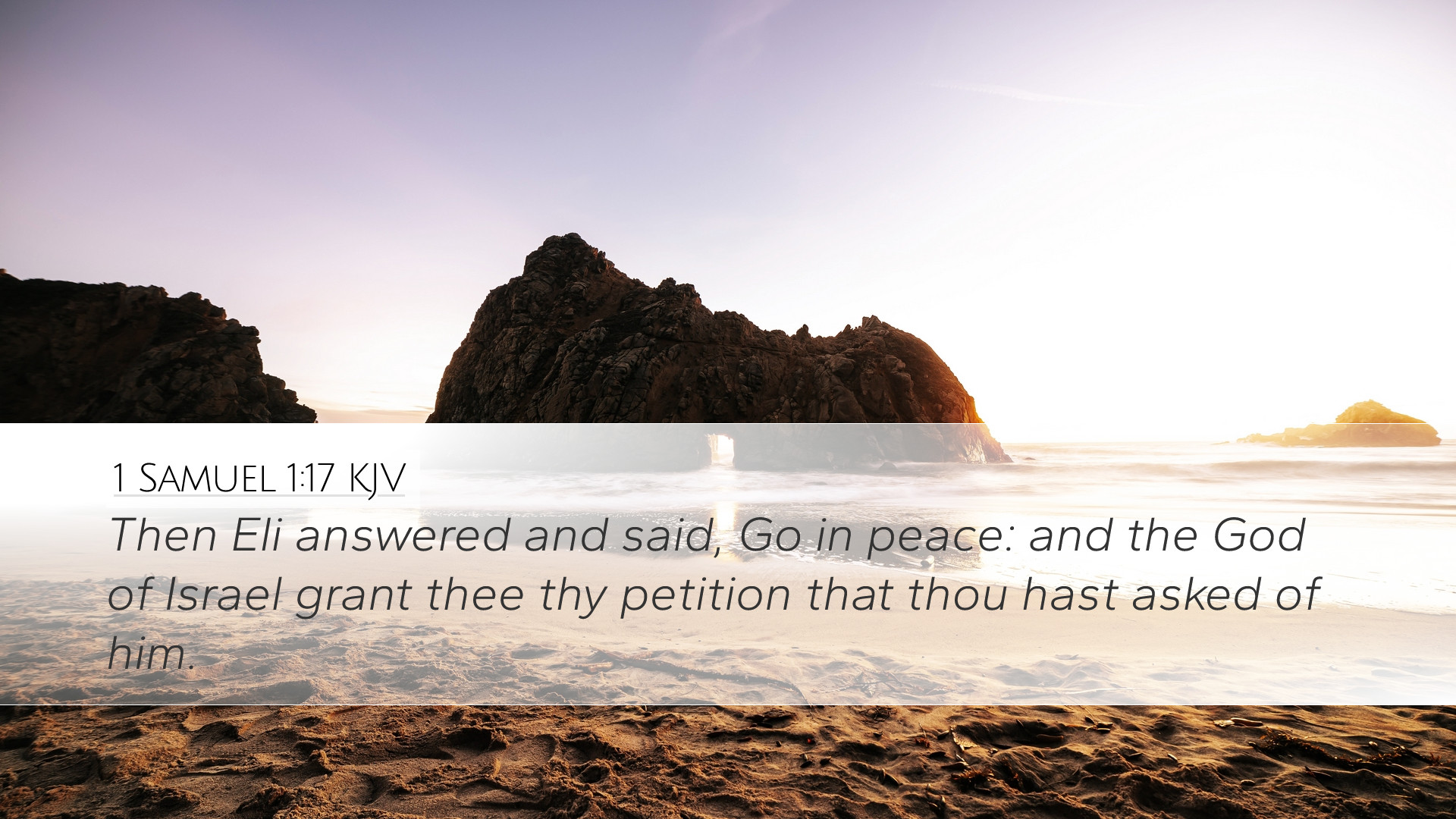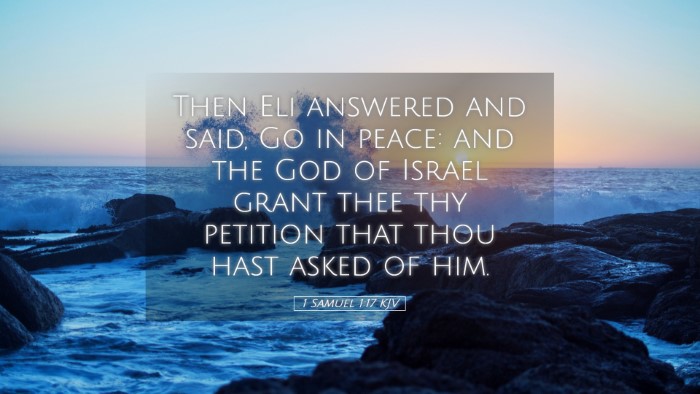Commentary on 1 Samuel 1:17
Verse Text: "Then Eli answered and said, Go in peace: and the God of Israel grant thee thy petition that thou hast asked of him." - 1 Samuel 1:17 (KJV)
Introduction
This verse encapsulates a pivotal moment in the narrative of Hannah, a woman of deep anguish and fervent prayer, seeking divine intervention for her barrenness. Eli's response, laden with both blessing and prophetic insight, sets the stage for the remarkable unfolding of God's plan in her life and the life of Israel.
Contextual Background
The historical context of 1 Samuel reveals a period of spiritual decline in Israel, where the priesthood was corrupt, and the people had turned away from God. Hannah's desperate plea for a child contrasts sharply with the apathy surrounding her. Understanding this backdrop is essential for grasping the significance of Eli’s response.
Insights from Commentaries
Matthew Henry
Matthew Henry emphasizes the importance of Eli's blessing. He notes that Hannah's prayer was not only for a child but also for the restoration of her dignity and the fulfillment of her role in the covenant community. Eli, serving as a priest, acts as an intermediary between God and Hannah, and his benediction signifies divine approval. He remarks, “Eli does not know what to make of Hannah’s fervent prayer but nevertheless encourages her, recognizing sincerity in her supplication.”
Albert Barnes
Albert Barnes highlights the theological implications of this interaction. He asserts that Eli's words, “Go in peace,” speak to the broader theme of God’s mercy and grace. Barnes observes that the Hebrew expression often signifies a state of well-being granted by God. Furthermore, he reflects on the importance of prayer within the community of faith, suggesting that Hannah's earnest request is indicative not only of her personal plight but also reflects the communal longing for God’s favor in Israel's current state. Barnes articulates, “The assurance given by Eli fosters hope in her despondent heart.”
Adam Clarke
Adam Clarke delves into the cultural and religious significance of the blessing spoken by Eli. He points out that Eli's words serve as a confirmation of Hannah's faith. Clarke explains that the act of going in peace is a profound affirmation that Hannah's desires have been presented before the Lord. He notes, “Eli’s role is significant; he acts as a mediator, and his recognition of her petition as legitimate opens the door for divine action on her behalf.”
Theological Reflections
The broader theological implications of this verse extend beyond the personal significance to Hannah. It illustrates the theme of God responding to the humble and the brokenhearted. The verse also reinforces the idea that God hears the prayers of His people, an essential tenet in Judeo-Christian belief. The provision of the faithful believer is inextricably linked to the character of God as one who grants petitions to those who approach Him earnestly.
Application for Pastors and Theologians
Encouragement in Prayer: Pastors are encouraged to remind their congregations of the power of sincere prayer. Eli’s openness to Hannah's plight encourages both the leader and the led to believe in the possibility of divine intervention.
Understanding Intercession: The role of Eli as a mediator illustrates the significance of community in prayer. The shared faith community can uplift and support individuals in their times of need, reinforcing the doctrine of intercession.
Faith Amidst Adversity: This passage encourages believers who are in despair or experiencing delays in their prayers. The assurance of God’s attention to their needs provides a solace that resonates with Hannah's experience.
Conclusion
1 Samuel 1:17 serves as a powerful reminder of the interplay between human desperation and divine response. The commitment of God to respond to our petitions and the affirmation from spiritual leaders are crucial aspects of the faith journey. The reflections from various commentators underscore the depth of this interaction, providing rich insights for understanding prayer's role within the faith community.


